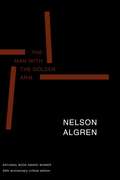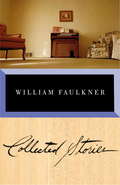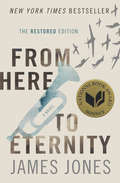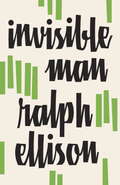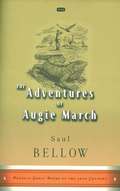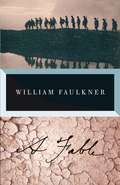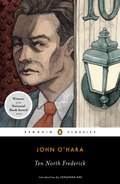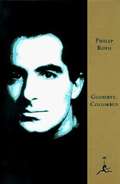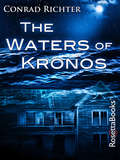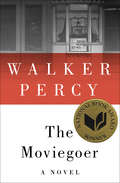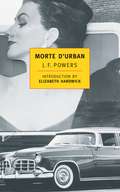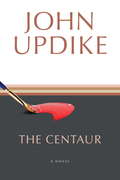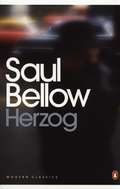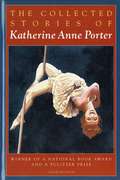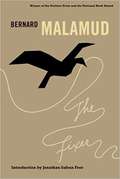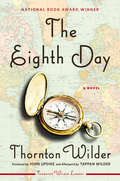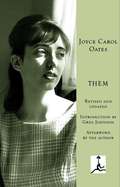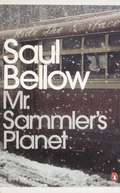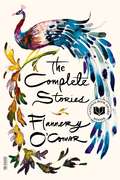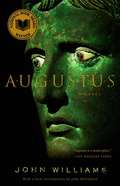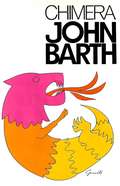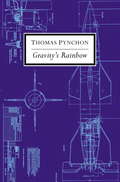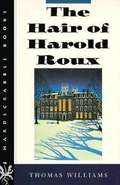Special Collections
National Book Award Winners - Fiction
- Table View
- List View
The Man with the Golden Arm (50th Anniversary Edition)
by Nelson AlgrenThe Man with the Golden Arm is Nelson Algren's most powerful and enduring work. On the 50th anniversary of its publication in November 1949, for which Algren was honored with the first National Book Award (which he received from none other than Eleanor Roosevelt at a ceremony in March 1950), Seven Stories is proud to release the first critical edition of an Algren work.
A novel of rare genius, The Man with the Golden Arm describes the dissolution of a card-dealing WWII veteran named Frankie Machine, caught in the act of slowly cutting his own heart into wafer-thin slices. For Frankie, a murder committed may be the least of his problems. A literary tour de force, here is a novel unlike any other, one in which drug addiction, poverty, and human failure somehow suggest a defense of human dignity and a reason for hope.
Special contributions by Russell Banks, Bettina Drew, James R. Giles, Carlo Rotella, William Savage, Lee Stringer, Studs Terkel, Kurt Vonnegut, and others.
Winner of the first National Book Award
Collected Stories
by William Faulkner"I'm a failed poet. Maybe every novelist wants to write poetry first, finds he can't and then tries the short story which is the most demanding form after poetry. And failing that, only then does he take up novel writing." --William Faulkner
Forty-two stories make up this magisterial collection by the writer who stands at the pinnacle of modern American fiction. Compressing an epic expanse of vision into hard and wounding narratives, Faulkner's stories evoke the intimate textures of place, the deep strata of history and legend, and all the fear, brutality, and tenderness of the human condition. These tales are set not only in Yoknapatawpha County, but in Beverly Hills and in France during World War I. They are populated by such characters as the Faulknerian archetypes Flem Snopes and Quentin Compson, as well as by ordinary men and women who emerge so sharply and indelibly in these pages that they dwarf the protagonists of most novels.
Winner of the National Book Award
From Here to Eternity
by James JonesA novel of army life in the calm before Pearl Harbor: A New York Times bestseller, a National Book Award winner, and &“one of the great books of our time&” (Newsday). At the Pearl Harbor army base in 1941, Robert E. Lee Prewitt is Uncle Sam&’s finest bugler. A career soldier with no patience for army politics, Prewitt becomes incensed when a commander&’s favorite wins the title of First Bugler. His indignation results in a transfer to an infantry unit whose commander is less interested in preparing for war than he is in boxing. But when Prewitt refuses to join the company team, the commander and his sergeant decide to make the bugler&’s life hell. An American classic now available with scenes and dialogue considered unfit for publication in the 1950s, From Here to Eternity is a stirring picture of army life in the months leading up to the attack on Pearl Harbor. This ebook features an illustrated biography of James Jones including rare photos from the author&’s estate.
Invisible Man
by Ralph EllisonInvisible Man is a milestone in American literature, a book that has continued to engage readers since its appearance in 1952.
The nameless narrator of the novel describes growing up in a black community in the South, attending a Negro college from which he is expelled, moving to New York and becoming the chief spokesman of the Harlem branch of "the Brotherhood", and retreating amid violence and confusion to the basement lair of the Invisible Man he imagines himself to be.
The book is a passionate and witty tour de force of style, strongly influenced by T.S. Eliot's The Waste Land, Joyce, and Dostoevsky.
Winner of the National Book Award
The Adventures of Augie March
by Saul BellowOriginally published in 1953, Saul Bellow's modern picaresque tale grandly illustrates twentieth-century man's restless pursuit of an elusive meaning.
Augie March, a young man growing up in Chicago during the Great Depression, doesn't understand success on other people's terms.
Fleeing to Mexico in search of something to fill his restless soul and soothe his hunger for adventure, Augie latches on to a wild succession of occupations until his journey brings him full circle.
Yet beneath Augie's carefree nature lies a reflective person with a strong sense of responsibility to both himself and others, who in the end achieves a success of his own making.
A modern-day Columbus, Augie March is a man searching not for land but for self and soul and, ultimately, for his place in the world.
Winner of the National Book Award
[This text is listed as an example that meets Common Core Standards in English language arts in grades 11-12 at http://www.corestandards.org.]
A Fable
by William FaulknerAn allegorical story of World War I, set in the trenches in France and dealing ostensibly with a mutiny in a French regiment, it was originally considered a sharp departure for Faulkner. Recently it has come to be recognized as one of his major works and an essential part of the Faulkner oeuvre.
This novel won both the Pulitzer Prize and the National Book Award in 1955.
Ten North Frederick
by John O'Hara and Jonathan DeeThe National Book Award-winning novel by the writer whom Fran Lebowitz called "the real F. Scott Fitzgerald"Joe Chapin led a storybook life.
A successful small-town lawyer with a beautiful wife, two over-achieving children, and aspirations to be president, he seemed to have it all. But as his daughter looks back on his life, a different man emerges: one in conflict with his ambitious and shrewish wife, terrified that the misdeeds of his children will dash his political dreams, and in love with a model half his age. With black wit and penetrating insight, Ten North Frederick stands with Richard Yates' Revolutionary Road, Evan S. Connell's Mr. Bridge and Mrs. Bridge, the stories of John Cheever, and Mad Men as a brilliant portrait of the personal and political hypocrisy of mid-century America.
The Wapshot Chronicle
by John CheeverThis National Book Award winner depicts the lives of the Wapshot family members, residents of the fishing village St. Botolphs, Massachusetts.
The Magic Barrel
by Bernard MalamudThirteen short stories, mostly about first-generation Jewish immigrants in America
Winner of the National Book Award
Goodbye, Columbus and Five Short Stories
by Philip RothGoodbye, Columbus; The Conversion of the Jews; Defender of the Faith; Epstein; You Can't Tell a Man by the Song He Sings; and Eli, the Fanatic. Also an introduction by the author.
Winner of the National Book Award
The Waters of Kronos
by Conrad Richter&“May it never go out of print again&”: An old man returns to his now-submerged Pennsylvania hometown in this National Book Award–winning classic (The Philadelphia Inquirer). The Pulitzer Prize–winning author of The Light in the Forest and The Awakening Land plumbs his own past to deliver a powerful novel of memory, family, forgiveness, and redemption. Nearing the end of his life, world-renowned novelist John Donner makes a final pilgrimage back to a childhood home that no longer exists. The coal mining community of Unionville, PA, now sits at the bottom of a lake created by a new hydroelectric dam on the Kronos River. The realization that his family&’s history has been completely washed away in the name of progress leaves Donner profoundly shaken. But following an odd encounter on a familiar road, John finds himself inexplicably transported back to Unionville on the eve of his grandfather&’s funeral. Suddenly he&’s surrounded by the people he loved, feared, and ultimately fled, including his elusive mother, his troubled father—and his younger self. A stranger to them all, John will have to once more find his place among them before his long journey can finally come to an end. Inspired by the author&’s personal history, The Waters of Kronos is considered by many to be Conrad Richter&’s masterpiece. Lyrical, poignant, dreamlike, and beautifully wrought, it is a classic work of twentieth-century American literature. &“An enchanted book. It reminds us anew of the magic which the printed page may hold, what we thought in a more innocent time as the spell and transport which the craftsmen of words may create.&” —New York Herald Tribune &“Writers as various as Marcel Proust, Thomas Wolfe, and James Thurber separately discovered that &‘you can&’t go home again.&’ In The Waters of Kronos, novelist Conrad Richter adds an extra dimension to this truism.&” —Time
The Moviegoer
by Walker PercyA young man, torn between the forces of tradition and change, searches for meaning in post-war America
On the cusp of his thirtieth birthday, Binx Bolling is a lost soul. A stockbroker and member of an established New Orleans family, Binx's one escape is the movie theater that transports him from the falseness of his life. With Mardi Gras in full swing, Binx, along with his cousin Kate, sets out to find his true purpose amid the excesses of the carnival that surrounds him. Buoyant yet powerful, The Moviegoer is a poignant indictment of modern values, and an unforgettable story of a week that will change two lives forever.
This ebook features an illustrated biography of Walker Percy including rare photos from the author's estate.
Winner of the 1961 National Book Award
Morte d'Urban
by Elizabeth Hardwick and J. F. PowersThe hero of J.F. Powers's comic masterpiece is Father Urban, a man of the cloth who is also a man of the world. Charming, with an expansive vision of the spiritual life and a high tolerance for moral ambiguity, Urban enjoys a national reputation as a speaker on the religious circuit and has big plans for the future. But then the provincial head of his dowdy religious order banishes him to a retreat house in the Minnesota hinterlands. Father Urban soon bounces back, carrying God's word with undaunted enthusiasm through the golf courses, fishing lodges, and backyard barbecues of his new turf. Yet even as he triumphs his tribulations mount, and in the end his greatest success proves a setback from which he cannot recover.First published in 1962, Morte D'Urban has been praised by writers as various as Gore Vidal, William Gass, Mary Gordon, and Philip Roth. This beautifully observed, often hilarious tale of a most unlikely Knight of Faith is among the finest achievements of an author whose singular vision assures him a permanent place in American literature.
Winner of The 1963 National Book Award for Fiction.
The Centaur
by John UpdikeWINNER OF THE NATIONAL BOOK AWARD AND THE PRIX DU MEILLEUR LIVRE ÉTRANGER The Centaur is a modern retelling of the legend of Chiron, the noblest and wisest of the centaurs, who, painfully wounded yet unable to die, gave up his immortality on behalf of Prometheus. In the retelling, Olympus becomes small-town Olinger High School; Chiron is George Caldwell, a science teacher there; and Prometheus is Caldwell's fifteen-year-old son, Peter. Brilliantly conflating the author's remembered past with tales from Greek mythology, John Updike translates Chiron's agonized search for relief into the incidents and accidents of three winter days spent in rural Pennsylvania in 1947. The result, said the judges of the National Book Award, is "a courageous and brilliant account of a conflict in gifts between an inarticulate American father and his highly articulate son."
Herzog
by Saul BellowWinner of the National Book Award for Fiction, Herzog is the story of Moses Herzog, great sufferer, joker and moaner, cuckold, charmer, a man of our time.
The Collected Stories of Katherine Anne Porter
by Katherine Anne PorterPorter’s reputation as one of Americanca’s most distinguished writers rests chiefly on her superb short stories. This volume includes the collections Flowering Judas; Pale Horse, Pale Rider; and The Leaning Tower as well as four stories not available elsewhere in book form.
Winner of the National Book Award and the Pulitzer Prize.
The Fixer
by Bernard MalamudWinner of the Pulitzer Prize and the National Book Award for Fiction, this magnificent novel is the story of an ordinary man accused of "ritual murder" and of his heroic victory over almost incredible brutality and degradation.
The Eighth Day
by Thornton WilderOn a Sunday afternoon in 1902 in Coaltown, Illinois, mine manager Breckenridge Lansing is shot and killed at a target practice. John Ashley, a longtime family friend, is convicted of murder and sentenced to death. On his way to the execution a mysterious rescue party takes over the prisoner's railway car and spirits him away. This sprawling novel lays bare the lives of the Ashley and Lansing families, each marked with tragedy yet sustained by hope. Wilder sees this story as part of the vast weave of human history. The novel examines large philosophical themes - faith, hope, love, and the meaning of life. The intricate plot is powered by two questions: who really killed Breckenridge Lansing? And who were the rescuers who saved John Ashley's life?
Winner of the National Book Award
them
by Joyce Carol OatesA novel about class, race, and the horrific, glassy sparkle of urban life, them chronicles the lives of the Wendalls, a family on the steep edge of poverty in the windy, riotous Detroit slums. Loretta, beautiful and dreamy and full of regret by age sixteen, and her two children, Maureen and Jules, make up Oates' vision of the American family--broken, marginal, and romantically proud.
The novel's title, pointedly uncapitalized, refers to those Americans who inhabit the outskirts of society--men and women, mothers and children--whose lives many authors in the 1960s had left unexamined.
Winner of the National Book Award
Mr. Sammler's Planet
by Saul BellowMr. Artur Sammler, Holocaust survivor, intellectual, and occasional lecturer at Columbia University in 1960s New York City, is a “registrar of madness,” a refined and civilized being caught among people crazy with the promises of the future (moon landings, endless possibilities). His Cyclopean gaze reflects on the degradations of city life while looking deep into the sufferings of the human soul. “Sorry for all and sore at heart,” he observes how greater luxury and leisure have only led to more human suffering. To Mr. Sammler—who by the end of this ferociously unsentimental novel has found the compassionate consciousness necessary to bridge the gap between himself and his fellow beings—a good life is one in which a person does what is “required of him.” To know and to meet the “terms of the contract” was as true a life as one could live. At its heart, this novel is quintessential Bellow: moral, urbane, sublimely humane.
Winner of the National Book Award
The Complete Stories Of Flannery O'Connor
by Flannery O'ConnorThe publication of this extraordinary volume firmly established Flannery O'Connor's monumental contribution to American fiction. There are thirty-one stories here in all, including twelve that do not appear in the only two story collections O'Connor put together in her short lifetime--Everything That Rises Must Converge and A Good Man Is Hard to Find.
O'Connor published her first story, "The Geranium," in 1946, while she was working on her master's degree at the University of Iowa. Arranged chronologically, this collection shows that her last story, "Judgement Day"--sent to her publisher shortly before her death―is a brilliantly rewritten and transfigured version of "The Geranium." Taken together, these stories reveal a lively, penetrating talent that has given us some of the most powerful and disturbing fiction of the twentieth century. Also included is an introduction by O'Connor's longtime editor and friend, Robert Giroux.
Winner of the National Book Award
Augustus
by John A. WilliamsA brilliant and beautifully written novel in the tradition of Robert Graves’ I, Claudius, Augustus is a sweeping narrative that brings vividly to life a compelling cast of historical figures through their letters, dispatches, and memoirs.
A mere eighteen years of age when his uncle, Julius Caesar, is murdered, Octavius Caesar prematurely inherits rule of the Roman Republic. Surrounded by men who are jockeying for power–Cicero, Brutus, Cassius, and Mark Antony–young Octavius must work against the powerful Roman political machinations to claim his destiny as first Roman emperor. Sprung from meticulous research and the pen of a true poet, Augustus tells the story of one man’s dream to liberate a corrupt Rome from the fancy of the capriciously crooked and the wildly wealthy.
Winner of the National Book Award
Chimera
by John BarthChimera is a 310 page mythological fantasy novel written by the distinguished novelist and Humanities professor John Barth and first published in 1972. Random House provides the following illustration and analysis of the work's artistic tone and value:
"At this point I interrupted my sister as usual to say, 'You have a way with words, Scheherazade. This is the thousandth night I've sat at the foot of your bed while you and the King made love and you told him stories, and the one in progress holds me like a genie's gaze.'"
The speaker here is Dunyazade, kid sister of Scheherazade of The Thousand and One Nights, who has her own way with words. There is also Perseus, the demigod who slew the Gorgon Medusa, and yet finds himself at forty "sealeveled, parched and plucked, every grain in my molted sandals raising blisters, and beleaguered by the serpents of my past." And Bellerophon, the hero who tames the winged horse Pegasus only to discover, "My life's a failure. I'm not a mythic hero. I never will be." Like the Chimera of myth, which had a lion's head, a goat's body, and a serpent's tail, they are all joined into a single, dazzling whole that is, in a sense, the culmination of all of John Barth's work thus far, transforming myth into daily reality and vice versa.
"To the objection that classical mythology, like the Bible, is no longer a staple of the average reader's education and that, consequently, the old agonies of Oedipus or Antigone are without effect on contemporary sensibility, I reply, hum, I forget what, something about comedy and selfexplanatory context."
The reader needs no previous acquaintance with the characters to be caught up in this hilariously exuberant exploration of the nature of the hero, the multitudinous relationships between men and women, and the mortal search for immortality, which, it is persuasively suggested, may lie not in deeds but in words.
Winner of the National Book Award
Gravity's Rainbow
by Thomas Pynchon"A screaming comes across the sky..."
A few months after the Germans' secret V-2 rocket bombs begin falling on London, British Intelligence discovers that a map of the city pinpointing the sexual conquests of one Lieutenant Tyrone Slothrop, U.S. Army, corresponds identically to a map showing the V-2 impact sites. The implications of this discovery will launch Slothrop on an amazing journey across war-torn Europe, fleeing an international cabal of military-industrial superpowers, in search of the mysterious Rocket 00000, through a wildly comic extravaganza.
Winner of the 1974 National Book Award
The Hair of Harold Roux
by Thomas WilliamsIn The Hair of Harold Roux, we are introduced to Aaron Benham: college professor, writer, husband, and father. Aaron-when he can focus-is at work on a novel, The Hair of Harold Roux, a thinly disguised autobiographical account of his college days. In Aaron's novel, his alter ego, Allard Benson, courts a young woman, despite the efforts of his rival, the earnest and balding Harold Roux-a GI recently returned from World War II with an unfortunate hairpiece. What unfolds through Aaron's mind, his past and present, and his nested narratives is a fascinating exploration of sex and friendship, responsibility and regret, youth and middle age, and the essential fictions that see us through.
Winner of the National Book Award
